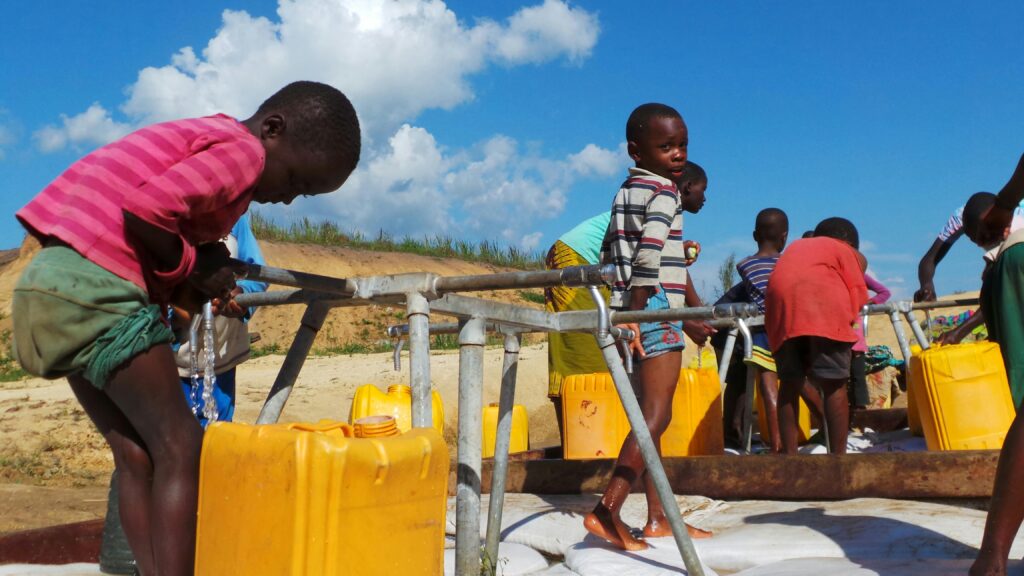support@socaa.org | +27 -739-045-948

Enhancing Water Security
Water is the lifeblood of any community, and in Africa, it’s a resource that shapes our daily lives, our economy, and our future. Yet, many of us face challenges in accessing clean, safe, and reliable water. For our children and future generations, improving water security is not just a necessity; it’s a promise for a healthier, more prosperous life.
What is Water Security?
Water security means having reliable access to sufficient, safe water to meet the needs of people, industries, and agriculture while maintaining the health of our ecosystems. In Zimbabwe, achieving water security can transform our communities, enhance our health, and strengthen our economy.
Challenges We Face
- Unpredictable Rainfall and Droughts: Climate change has made our weather patterns unpredictable, leading to prolonged droughts that deplete our water sources.
- Infrastructure Issues: Many areas lack the necessary infrastructure, such as boreholes, wells, and piped water systems, to provide consistent access to clean water.
- Pollution and Contamination: Water sources are often contaminated due to poor waste management and agricultural runoff, making them unsafe for drinking.
- High Costs and Inaccessibility: In urban areas, water supply can be irregular and costly, while rural areas often lack access to clean water altogether.
- Population Growth: Increasing population puts additional strain on our limited water resources.
How Can We Improve Water Security?
Develop Sustainable Water Sources:
- Rainwater Harvesting: Collect and store rainwater during the rainy season for use during dry periods.
- Groundwater Exploration: Invest in drilling more boreholes and wells to tap into underground water sources.
- Dams and Reservoirs: Build and maintain reservoirs to store water for agricultural and domestic use.
Enhance Infrastructure:
- Upgrade and Expand: Modernize existing water supply systems and expand them to underserved areas.
- Community-Managed Systems: Empower local communities to manage and maintain their own water systems.
Protect Water Quality:
- Waste Management: Implement better waste disposal practices to prevent contamination of water sources.
- Water Treatment: Use simple, cost-effective water purification methods to ensure water is safe for drinking.
Adopt Water-Efficient Practices:
- Agricultural Techniques: Encourage the use of drip irrigation and other water-saving technologies in farming.
- Household Conservation: Educate families on how to reduce water waste and use water more efficiently at home.
Strengthen Governance and Policy:
- Water Rights: Ensure fair and equitable access to water for all communities.
- Government Investment: Advocate for more government funding and support for water infrastructure projects.
Benefits to Our Community
Health Improvements:
- Reduced Diseases: Access to clean water significantly reduces waterborne diseases, such as cholera and dysentery.
- Better Nutrition: Reliable water supply supports better sanitation and food preparation, leading to improved nutrition and health.
Economic Growth:
- Agricultural Productivity: Stable water supply boosts crop yields and livestock production, enhancing food security and income.
- Job Creation: Developing water infrastructure creates jobs and stimulates economic activity.
Educational Opportunities:
- Less Time Fetching Water: Children, especially girls, spend less time collecting water and more time in school.
- Healthier Students: Better health means fewer school absences, leading to improved educational outcomes.
Empowered Women and Children:
- Women’s Rights: Reducing the burden of water collection empowers women, giving them more time for education and economic activities.
- Safer Childhood: Reliable access to clean water provides a safer, healthier environment for children to grow and thrive.
